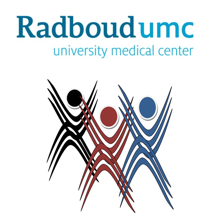Improving social participation and physical endurance with Energetic
Background
Energetic is a multidisciplinary self-management group program for patients with a neuromuscular disorder and chronic fatigue. Chronic fatigue is present in more than 60% of the patients with a neuromuscular disease and can be their most disabling symptom and leads to low levels of physical activity, decreased social participation and high societal costs.
The program Energetic was developed and has been adjusted over the years in collaboration with patients. The program combines individually tailored aerobic exercises with energy management training and supports sustained behavioral change in daily life.
Aim
The Energetic program aims to improve social participation and physical endurance and aims to alleviate fatigue.
Relevance of the initiative
Energetic is organized in an Integrated Practice Unit where patients receive education and training from various healthcare professionals. It is group based, so that they can exchange experiences and still work at achievement of self-identified goals related to social participation. Patient value is defined as the ability to perform meaningful activities and social participation.
Methods
To study the (cost-)effectiveness, a multicentre randomized controlled trial was conducted in which patients were randomly allocated to either the intervention group receiving the Energetic program or a control group, receiving regular care. The program was offered in a university medical centre, a regional rehabilitation centre, and a community healthcare centre who all formed integrated practice units around the Energetic program.
The program Energetic covers four months and includes an individual screening and four group modules: 1) individually tailored aerobic exercise training; 2) education on aerobic exercise; 3) self-management training in applying energy-conservation strategies; and 4) implementation and relapse prevention in daily life.
The primary outcome measure was the Canadian Occupational Performance Measure (COPM), a client-centered outcome measure, measuring performance and satisfaction with performance of priorities regarding participation in daily occupations. Secondary outcome measures included the six minute walking test and Checklist Individual Strength subscale fatigue. In addition, healthcare costs and societal costs were recorded.
The most important (preliminary) results
Energetic resulted in better social participation compared to usual care without increasing medical costs. After 11 months follow-up these beneficial effects remained. In addition, a process evaluation showed that Energetic is feasible and effective in different integrated outpatient medical practice units in the primary care, rehabilitation setting and hospital setting.

